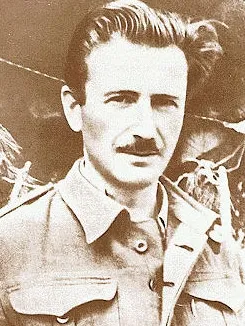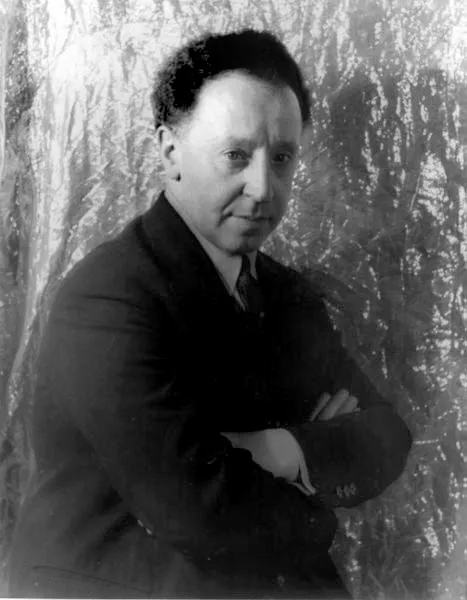
Name: Per Oscarsson
Nationality: Swedish
Profession: Actor, director, producer, and screenwriter
Birth Year: 1927
Death Year: 2010
1927 – Per Oscarsson, Swedish actor, director, producer, and screenwriter (d. 2010)
Early Life and Education
Oscarsson was born into a creative family, which greatly influenced his artistic pursuits. His passion for performing arts became evident in his youth. After completing his studies at the Royal Dramatic Theatre in Stockholm, Oscarsson began to hone his skills under some of Sweden's finest directors and playwrights, preparing himself for a promising career in the performing arts.
Career Highlights
His career took off in the 1950s, with Oscarsson making a name for himself in numerous theatrical productions. He gained significant acclaim for his roles in Swedish cinema during the 1960s and 70s, with performances that showcased his remarkable range and depth. Notable films include Hunger (1966) and The Man on the Roof (1976), where he depicted complex characters with emotional intensity.
Oscarsson's talents were not limited to acting; he also ventured into directing and producing, contributing to various projects that underscored his multifaceted abilities. He received several awards and nominations throughout his career, including the prestigious Guldbagge Award, which is Sweden's equivalent of the Oscars.
International Recognition
Despite primarily working in Swedish productions, Oscarsson's work caught the attention of international audiences. His captivating performances earned him roles in foreign films, helping to bring Swedish cinema to a broader audience. He was particularly famous for his collaboration with acclaimed director Bille August, who directed him in the Oscar-winning film Pelle the Conqueror (1987).
Later Years and Legacy
In the later stages of his career, Oscarsson continued to work actively, showcasing his talent in various television dramas and films until the late 2000s. His contributions to the arts didn’t go unnoticed, and he received honors acknowledging his lifelong commitment to the performing arts.
Oscarsson passed away on September 24, 2010, in Stockholm, but his legacy lives on through the many films and performances that continue to inspire actors and audiences alike. He is remembered not only for his incredible talents but also for the humanity and emotion he brought to every role he played.
Per Oscarsson: A Journey Through Talent and Transformation
In the heart of Sweden, in the year 1927, a child was born who would grow to become one of the nation’s most cherished figures in film and theater. Per Oscarsson entered the world during a time when Europe was grappling with profound changes, both socially and politically. As he grew up amidst these shifting tides, his early years were marked by an insatiable curiosity and a knack for storytelling that would set him on an extraordinary path.
Growing up in Stockholm, young Per found himself captivated by the world around him. The theater beckoned a mystical realm where stories came alive. It wasn’t merely a hobby; it was a calling. However, like many aspiring artists, he faced skepticism from those who deemed acting an impractical pursuit. Yet this only fueled his ambition further arguably propelling him to pursue his dreams with relentless determination.
At 17, armed with nothing but passion and a burning desire to perform, he took his first steps onto the stage at the Royal Dramatic Theatre in Stockholm. Ironically, this prestigious institution had once seemed unattainable; now it became a second home for him as he honed his craft among some of Sweden's finest actors. His performances began to gain recognition not just for their technical prowess but also for their emotional depth.
In 1956, after years of dedication and hard work on various stage productions across Europe, Oscarsson made a transition that would redefine his career: film. His debut on-screen role came in "Kärleken," where audiences were struck not just by his striking features but by an intense authenticity that seemed rare in cinema at that time. Critics took notice many speculating about how such raw talent had flown under the radar for so long.
The breakthrough arrived shortly thereafter with "The Green Room" (1978). In this film adaptation of August Strindberg's play a tale fraught with existential angst Oscarsson delivered an unforgettable performance that solidified his status as one of Sweden’s leading actors. Historians recount that this film was pivotal not only for its artistic merit but also because it opened doors for Swedish cinema internationally during an era dominated by Hollywood.
Despite achieving critical acclaim early on in his career, Oscarsson never allowed success to inflate his ego; instead, he remained grounded perhaps recognizing how fickle fame can be within such volatile industries. In interviews throughout his life he candidly spoke about struggles faced behind-the-scenes: mental health battles intensified during periods when roles dwindled or when personal challenges arose.
Around this time or perhaps coinciding it is fascinating to note how technology began transforming entertainment as television emerged onto every household screen across Europe! However daunting these changes may have seemed initially from scriptwriting adaptations to casting choices the shift provided new opportunities for performers like Oscarsson who could now reach wider audiences than ever before!
In 1985 came another significant turning point: Oscarsson shifted gears entirely toward directing! This endeavor revealed yet another layer of creativity within him a visionary aspect keen on exploring narratives beyond mere performance alone! Perhaps considering himself fortunate enough having gained valuable insights through countless collaborations alongside gifted writers over decades who knows if those experiences paved pathways into filmmaking which ultimately culminated into works such as “Ravenous” (1999)!
Certainly there were ups-and-downs throughout every chapter the unpredictable nature inherent within show business led many talented individuals down paths less traveled... But Per navigated all hurdles while maintaining dignity despite setbacks encountered along journeys undertaken!
A Legacy Beyond Film
This journey wasn’t solely confined within cinematic boundaries either! As someone continuously dedicated towards enriching cultural heritage it’s worth highlighting how engaged he remained outside conventional acting roles whether mentoring aspiring artists or supporting community initiatives aimed at promoting arts education nationwide… Those contributions undoubtedly echo through generations today fueling inspirations found across burgeoning talents breaking through modern barriers unseen previously!
Sadly though as life teaches us all it must come full circle eventually… On April 24th 2010 the curtain fell down upon Per's illustrious career as news broke out regarding passing away peacefully surrounded by loved ones amidst memories shared fondly from years gone past while reflecting deeply upon remarkable legacies left behind…
The Irony of Influence
Inevitably some might wonder what lasting impact remains today? It is compelling indeed when considering fluctuations affecting popularity trends amid eras transitioning swiftly from generation-to-generation… How interesting then? Even amidst digital realms proliferating rapidly via social media platforms allowing instant fame they too cannot replicate intangible qualities stemming deep-rooted connections forged over countless heartfelt performances showcased live before captivated crowds longing solace found art itself delivers!
The Present-Day Connection
"While younger audiences may not always recognize names like Per Oscarsson instantly they subconsciously absorb influences woven throughout contemporary narratives & character archetypes..." - A cultural analyst remarked during recent discourse surrounding legacy-building amongst icons fading into obscurity.
Today we see remnants manifested undeniably throughout popular culture whether encapsulated within indie films pushing boundaries exploring psychological complexities reminiscent traits observed primarily originating back through vintage classics associated specifically tied towards works curated under masterful direction performed seamlessly...








